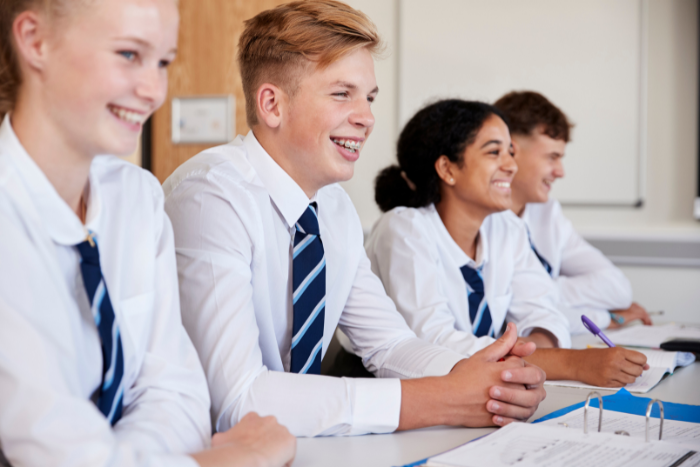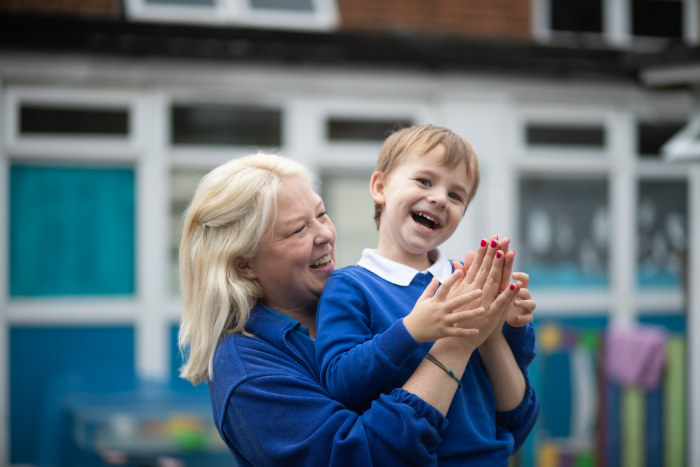
Sexual Health Week 2022: Breaking Barriers
Estimated reading time: 3 minutes, 50 seconds.
Dr Helen Dring Turner, Brook’s Resource Development Coordinator, recently completed a PhD on how RSE can improve representation and inclusion for LGBT+ neurodivergent young people. Here, Helen shares feedback from interviews with young people to inform this series of top tips for teaching RSE (Relationships and Sex Education) to neurodivergent LGBT+ young people.

Explain ‘sex’ more clearly.
Even if it sounds obvious, explaining what you mean by sex is really important. For example, letting young people know that there are a range of types of sex (vaginal, oral, anal, masturbation and using sex toys) and that each type of sex ‘counts’ as sex.
The young person I interviewed explained that this was important for a couple of reasons. Firstly, it lets them know that they might need to think about safer sex practices for all kinds of sex, rather than just the kinds of sex that could result in a pregnancy. Secondly, it means that if they’re not having sex that could result in a pregnancy, it lets them know that this is still sex, and still as important and valid as any other kind of sex. This young person reiterated that it might seem obvious as a teacher, but that saying it explicitly helps make things really clear for a neurodivergent person and really inclusive for LGBT+ young people.
Don’t assume we know what you mean.
This feeds into the first point a little bit, but is worth explaining in more depth. Young people I spoke to said that sometimes when they were delivering topics like consent, teachers would assume that young people already knew that any kind of sexual activity needed consent. One young person said that even though that sounds like common knowledge, they liked it when teachers made things really clear and gave examples of how you could ask for and/or give consent because it wasn’t a situation they were already familiar with.
Teach us in different ways.
A common experience I heard was that, whilst other lessons might use a variety of activities for learning, RSE lessons often didn’t. Young people said that they’d like having a chance to do activities and have discussions in smaller groups, but sometimes RSE felt very like they were expected to listen and remember, but they didn’t always have the ability to retain all that information at once. They said having a summary card of what they’d learned to keep or a booklet they could use to refresh their memory after the lesson would be helpful.
Show us diversity, but not difference.
How neurodivergent and LGBT+ people were represented is something that came up a lot in the conversations I had with young people. Some of them said that LGBT+ people had been used as case studies or role models to help their peers develop empathy, but that showing stories where an LGBT+ person had a really difficult coming out story just reinforced their expectation that being LGBT+ was a challenging experience. They said they’d like to see a range of people represented in RSE – including neurodivergent and LGBT+ people – without the emphasis always being on the ways in which their experience differed from the ‘norm’.
For example, they said that using scenarios where a neurodivergent person approaches relationships differently to a neurotypical person and focusing on how the neurotypical person reacts to this wasn’t helpful, but that showing ways the two could communicate effectively would be.
Ask us what we want.
Young people being able to contribute to what is taught in RSE was important to all of the young people I spoke to. They agreed that having a curriculum that had to be taught was great, but that they felt that it was still a bit out of touch with what young people needed and wanted. They said that it would be really helpful if schools ran an anonymous poll for each school year asking what people wanted or felt they needed to learn more about and planning ways to build that into the curriculum.
Finally, none of the young people I spoke to said they felt that RSE had really helped them with their relationships as young adults. Along with the tips above, make sure that your RSE lessons relate back to young people feeling happy and safe in their relationships with other people.
Find out more about Brook’s Sexual Health Week 2022: Breaking Barriers
Visit our Brook’s resources page to find free resources to support your teaching.


